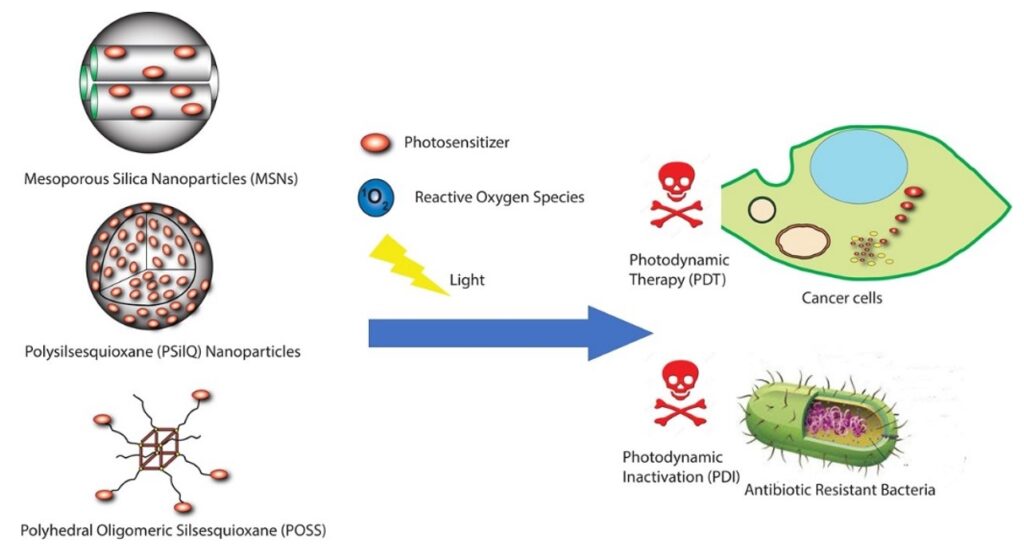The purpose of this project is to develop novel multifunctional silica-based hybrid nanoparticles with outstanding properties for photodynamic therapy (PDT) and photodynamic inactivation (PDI) applications.
Research Mentor
Juan Vivero-Escoto (Chemistry)
Description
Photodynamic therapy (PDT) is a light-based therapy that avoids most of the side effects of traditional chemical and radiation therapies. The principle of PDT is based on the selective internalization of a photosensitizer which upon irradiation with light generates reactive oxygen species that kill cancer cells. This approach can be expanded to eliminate antibiotic resistant bacteria, it is known as photodynamic inactivation (PDI). Traditionally, porphyrin-based photosensitizers have dominated the field; however, recent developments have shown that novel photosensitizing agents such as chlorin and phthalocyanine molecules are an excellent alternative. Nevertheless, these compounds still have similar disadvantages as porphyrin molecules such as low water solubility and reduced selectivity for targeted cancer cells. Nanoparticles represent emerging drug delivery systems that can overcome most of these issues. In this project, we will synthesize novel silica-based platforms including mesoporous silica nanoparticles (MSNs), polysilsesquioxane (PSilQ) and polyhedral oligomeric silsesquioxane (POSS) nanomaterials for the improved delivery of photosensitizing agents. The therapeutic properties of the silica-based hybrid nanoparticles will be tested in vitro using cancer cells and/or antibiotic resistant bacteria.
REU Students’ Role
The students in Dr. Vivero-Escoto’s lab will be involved with the synthesis and characterization of photosensitizing agents and nanoparticles. Synthetic methods such as reverse microemulsion and sol-gel will be used to produce nanoparticles. These materials will be characterized by a wide variety of techniques such as dynamic light scattering, thermogravimetric analysis, surface analyzer, and scanning and transmission electron microscopy. The students will also be exposed to the in vitro experiments to determine the therapeutic effect against cancer cell lines and/or antibiotic resistant bacteria.

